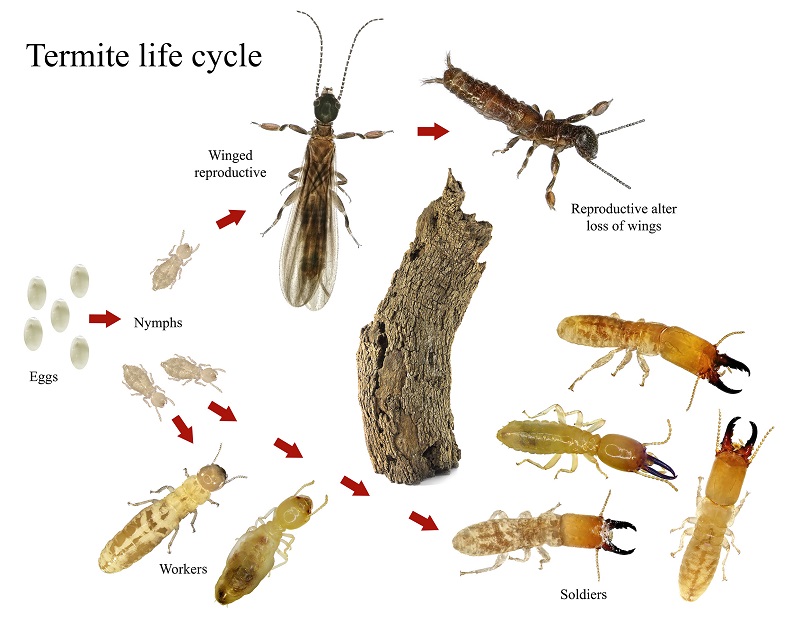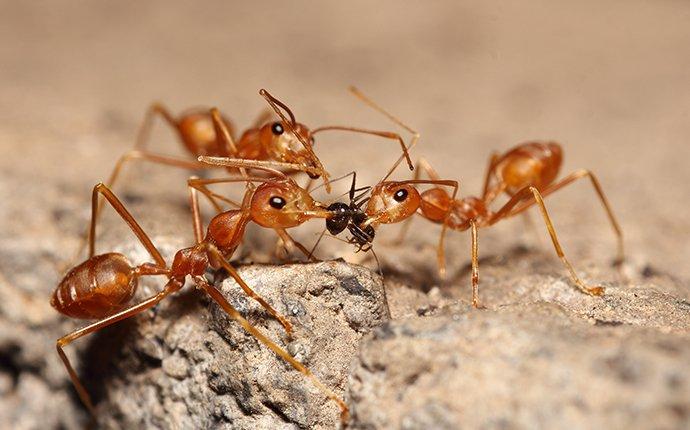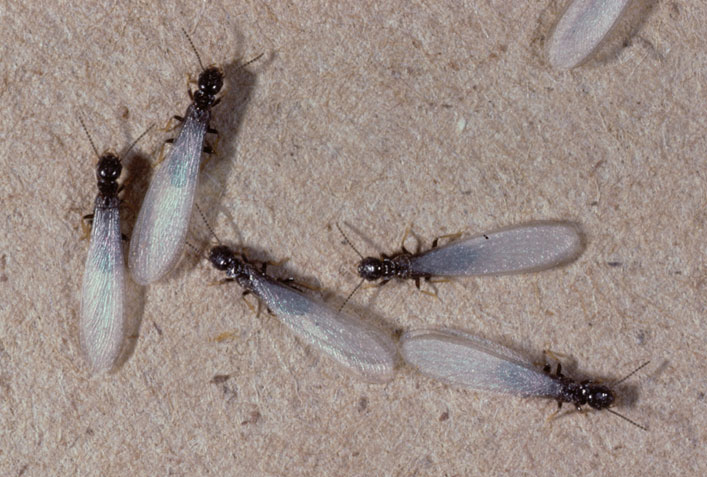Top-Rated Termite Control Services: Make Certain Long-Term Security for Your Residential or commercial property
Top-Rated Termite Control Services: Make Certain Long-Term Security for Your Residential or commercial property
Blog Article
Ecological Effect of Pest Control: Balancing Effectiveness With Sustainability
The ecological influence of pest control is an essential problem that needs a fragile equilibrium between attaining performance in handling parasites and ensuring sustainability of our ecosystems. From the usage of hazardous chemicals that permeate right into our soil and water to the unintentional consequences on non-target types, the consequences of standard pest control practices are far-ranging.
Dangerous Chemicals in Insect Control
The use of harmful chemicals in insect control poses substantial environmental and health dangers that require cautious factor to consider and mitigation strategies. Herbicides, insecticides, and pesticides are frequently used to eradicate bugs, however their extensive application can lead to unintended consequences. These chemicals can pollute dirt, water sources, and the air, affecting not just the targeted insects but likewise advantageous bugs, wild animals, and humans.

To address these threats, incorporated bug management (IPM) methods are being advertised as a more lasting choice. IPM involves a combination of methods such as organic control, habitat manipulation, and the targeted use chemicals as a last hope (ant control clayton nc). By taking on a holistic strategy to pest control, we can decrease the ecological and health and wellness influences associated with unsafe chemicals while properly taking care of pest populations
Influence On Non-Target Types
Considering the unexpected repercussions of pest control methods, the influence on non-target varieties is an important element that requires complete examination. While parasite control steps aim to target specific insects, various other microorganisms in the ecosystem may be inadvertently influenced. Non-target varieties, including helpful insects, birds, animals, and also plants, can experience straight or indirect injury from chemical applications or biological control methods.
Pesticides designed to combat a specific bug pest might hurt pollinators like bees or natural killers such as ladybugs. Biological control agents, if not species-specific, can pose threats to unexpected targets, interrupting the environmental balance.
To alleviate the influence on non-target species, integrated pest management (IPM) approaches that highlight an alternative technique to pest control are recommended. These techniques prioritize using ecologically friendly methods, minimizing injury to helpful organisms while properly handling pest populaces. Carrying out complete risk analyses and monitoring the results of parasite control efforts are necessary action in securing non-target species and advertising total ecological community health and wellness.
Dirt and Water Contamination
Unexpected environmental repercussions of bug control techniques prolong past affecting non-target types, with considerable implications for dirt and water contamination. Pesticides, herbicides, and chemical plant foods utilized in bug control can leach right into the soil and contaminate groundwater, presenting a risk to both marine and earthbound ecosystems. Soil contamination can interrupt the balance of microorganisms important for vitamins and mineral cycling and plant development, causing lowered dirt fertility and performance. Additionally, these chemicals can linger in the setting for prolonged periods, gathering in the dirt and possibly entering the food cycle.
Water contamination is an additional important issue associated with pest control techniques. To alleviate soil and water contamination from insect control tasks, integrated parasite administration methods that focus on sustainability and decrease chemical inputs are vital.
Air Air Pollution From Chemical Usage
Exposure to airborne chemicals throughout agricultural applications positions a significant concern for air contamination control procedures. When pesticides are splashed onto crops, they can volatilize into the air and form volatile organic substances (VOCs) and other air-borne toxins. These chemicals can add to the development of ground-level ozone, a significant component of smoke that can have destructive effects on human wellness, crop performance, and overall air top quality. In addition, chemical drift, where chemicals are carried by the wind to unplanned areas, can cause the contamination of neighboring environments and water bodies.

Approaches for Lasting Insect Control
In the realm of agricultural practices, implementing sustainable insect control strategies is critical for maintaining environmental equilibrium and securing crop yields. Sustainable insect control emphasizes the use of eco-friendly approaches to manage bug populations successfully while minimizing harm to non-target microorganisms and communities. Integrated Bug Administration (IPM) is a commonly embraced approach that integrates biological, social, physical, and chemical control methods to achieve long-lasting bug monitoring options.
One secret strategy in sustainable insect control is promoting biodiversity within agroecosystems. By improving natural opponents of pests, such as killers and parasitoids, farmers can reduce the requirement for artificial chemicals. Crop turning and diversification are likewise effective methods to interrupt pest life process and create less beneficial conditions for insects to prosper. In addition, utilizing pest-resistant crop selections and utilizing techniques like trap cropping can help in reducing bug pressure without relying greatly on chemical interventions. Eventually, by incorporating these sustainable pest control methods, farmers can attain a balance in between pest administration efficiency and ecological stewardship.
Final Thought
In final thought, the environmental impact of pest control techniques have to be very carefully thought about to balance effectiveness with sustainability. Unsafe chemicals made use of in bug control can bring about dirt and water contamination, air pollution, and harm non-target species - ant control. It is important to execute lasting pest control approaches to decrease these negative results on the atmosphere and advertise a much healthier ecosystem for future generations
By embracing a holistic technique to pest control, we can decrease the ecological and health impacts associated with harmful chemicals while successfully taking care of pest populaces.

To reduce the air pollution triggered by pesticide usage, it is necessary to take on incorporated parasite management techniques that prioritize the use of non-chemical insect control approaches, such as plant rotation, natural killers, and resistant plant selections. Sustainable bug control highlights the use of eco pleasant approaches to handle parasite populations successfully while reducing harm to non-target microorganisms and ecological communities. Integrated Pest Management (IPM) is an extensively embraced method that integrates biological, cultural, physical, and chemical control approaches to attain long-lasting pest monitoring solutions.
Report this page